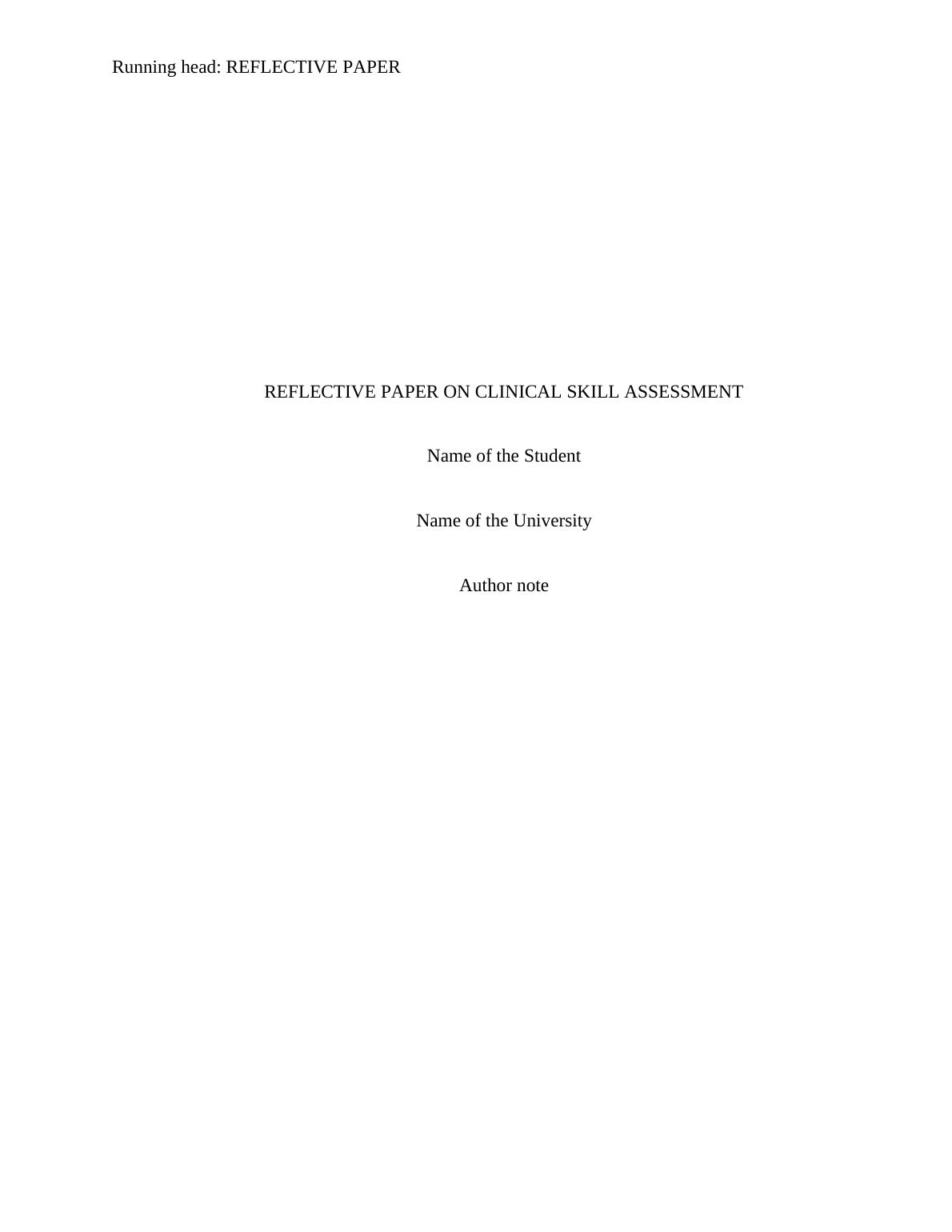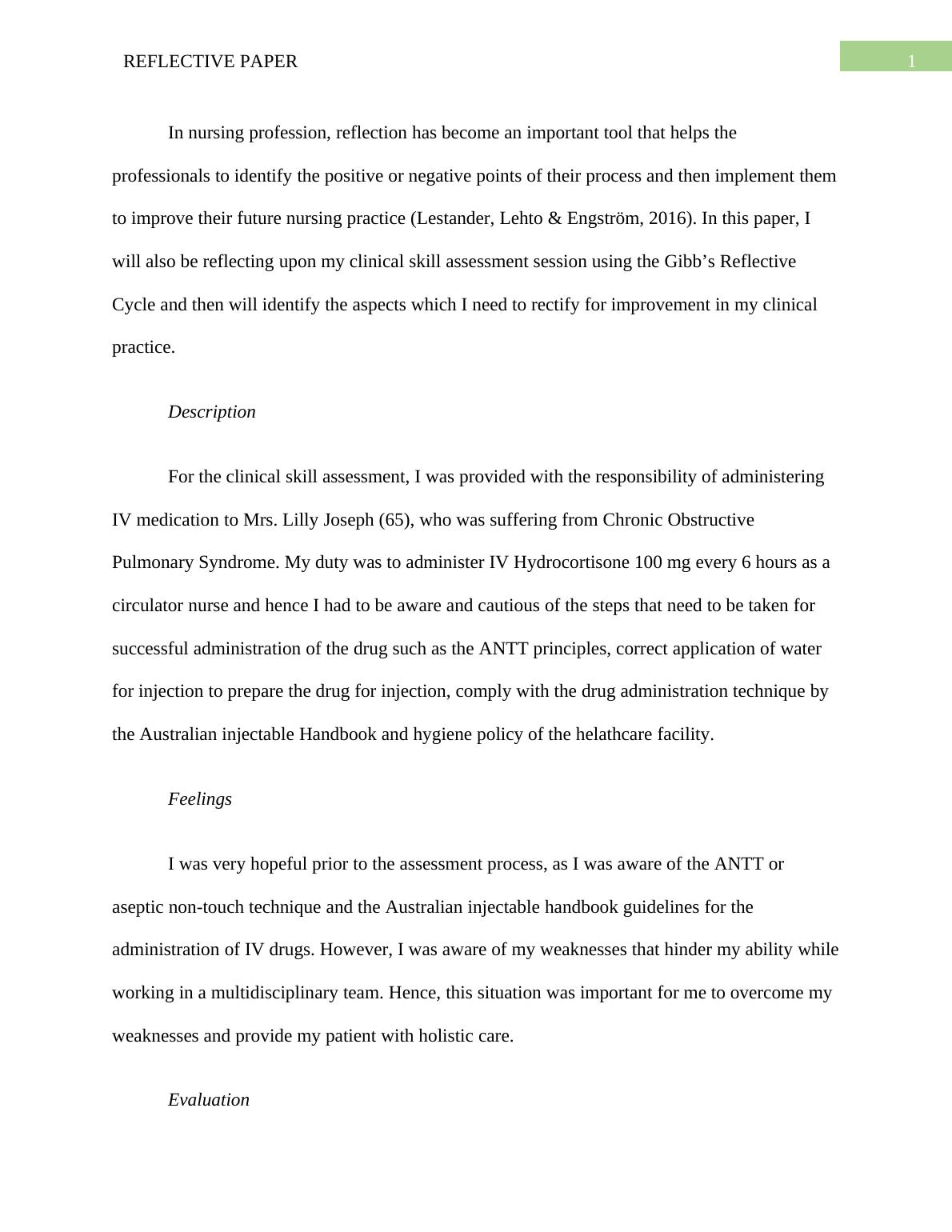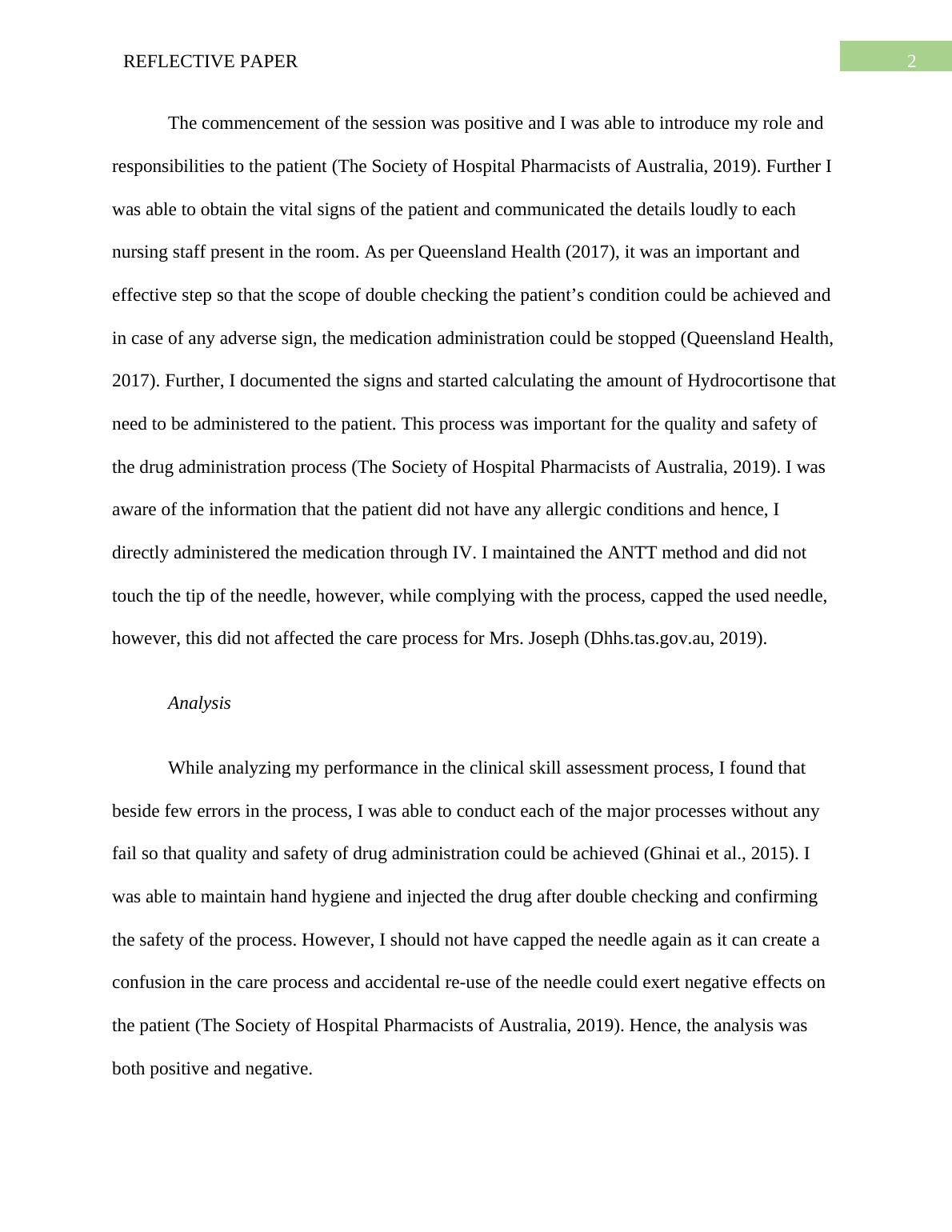Reflective Cycl and Gibb's Reflective Cycl for Clinical Skill Assessment
This assessment task assesses the application of individual clinical reasoning skills in a given clinical scenario simulation. Students are assessed on their individual performance during a team managed advanced clinical simulation. Psychomotor skills will be assessed in relation to how they are applied within the context of the scenario. To promote reflective learning students are also required to submit a critical written reflection on their individual performance in the clinical skill as a means to further enhance their learning.
Added on 2023-04-23
Reflective Cycl and Gibb's Reflective Cycl for Clinical Skill Assessment
This assessment task assesses the application of individual clinical reasoning skills in a given clinical scenario simulation. Students are assessed on their individual performance during a team managed advanced clinical simulation. Psychomotor skills will be assessed in relation to how they are applied within the context of the scenario. To promote reflective learning students are also required to submit a critical written reflection on their individual performance in the clinical skill as a means to further enhance their learning.
Added on 2023-04-23
End of preview
Want to access all the pages? Upload your documents or become a member.



